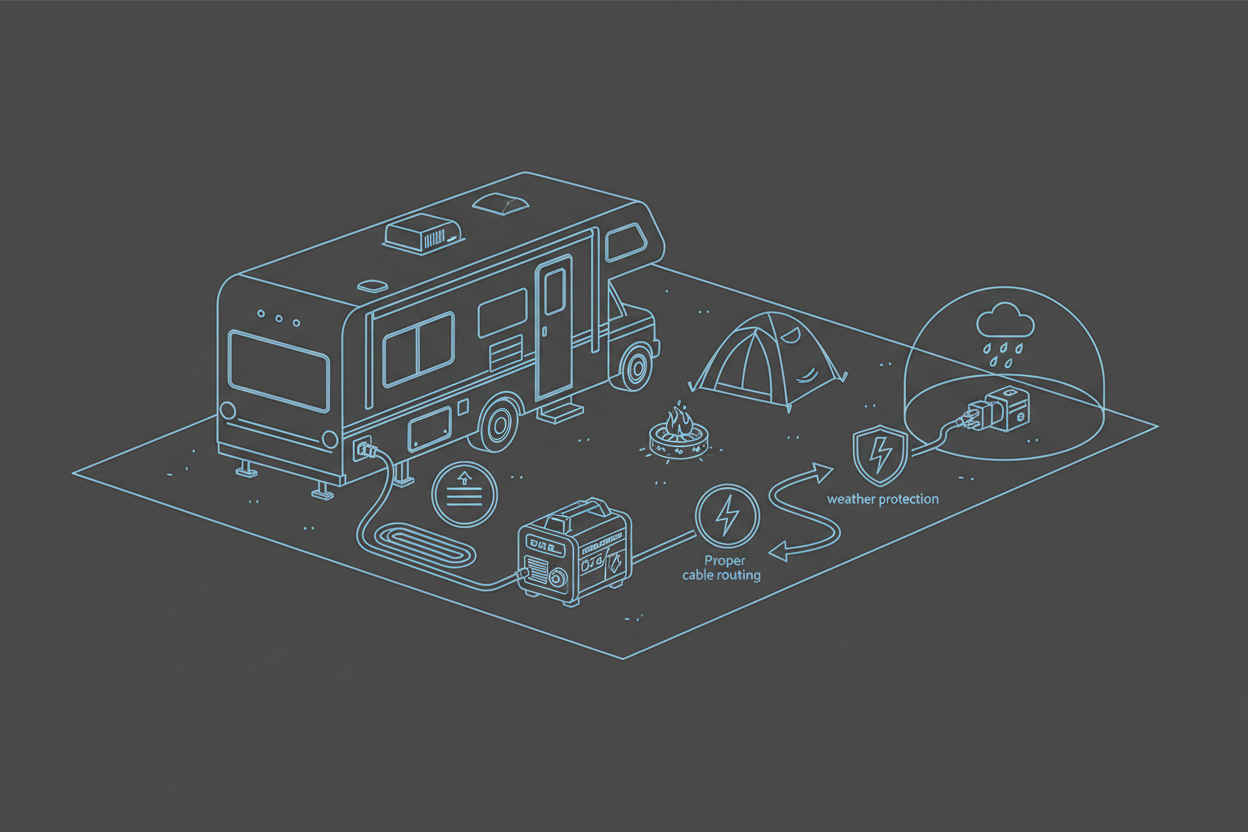How to Safely Connect an RV to a Generator: Cords, Adapters, and Grounding
Connecting an RV to a generator requires the correct cable, adapter, and grounding method. Safe wiring prevents overloads, tripped breakers, and electrical damage to your RV appliances.

Types of RV Generator Connections
RVs use different plug types depending on their electrical systems. Matching the right cable and adapter ensures proper voltage and safe power delivery.
- 15/20A household plug: for light loads or battery charging
- 30A TT-30 plug: most common for travel trailers
- 50A 14-50 plug: for fifth wheels and large motorhomes
Many generators include a 30A RV outlet, while some require adapters.
Choosing the Right RV Power Cord
Use heavy-duty RV-rated cables to prevent overheating and voltage drop. Avoid lightweight extension cords when running major appliances.
- Use short cables when possible.
- Check for heat at plugs during high load.
- Replace damaged cords immediately.
Using RV Adapters Correctly
Adapters convert plug types but do not increase available power. A 15A household outlet cannot safely power a 13,500 BTU RV air conditioner.
- Match adapter to generator and RV plug rating.
- Avoid stacking multiple adapters.
- Use weatherproof adapters for outdoor use.
Grounding Your Generator
Most inverter generators do not require external grounding when powering RVs. Always check the manual for bonding or grounding instructions.
- Use grounding rods only when required by the manufacturer.
- Ensure generator sits on dry, stable ground.
- Avoid operating during heavy rain without proper cover.
Surge Protection and Electrical Safety
Surge protectors help prevent damage from voltage spikes and unstable campground power. They monitor wiring faults and disconnect power if unsafe conditions occur.
- Use EMS surge protectors for added safety.
- Check lights and indicators before connecting your RV.
- Monitor voltage during high demand periods.
Weather Protection for Electrical Connections
Keep plugs off the ground and shielded from rain. Use covers or weather-resistant housings when running cables in wet conditions.
- Elevate adapters to avoid puddles.
- Route cables away from walkways.
Conclusion
Safe generator connection ensures stable RV power and protects appliances from electrical faults. With the right cords, adapters, and grounding methods, your RV stays powered and protected in any campsite.
